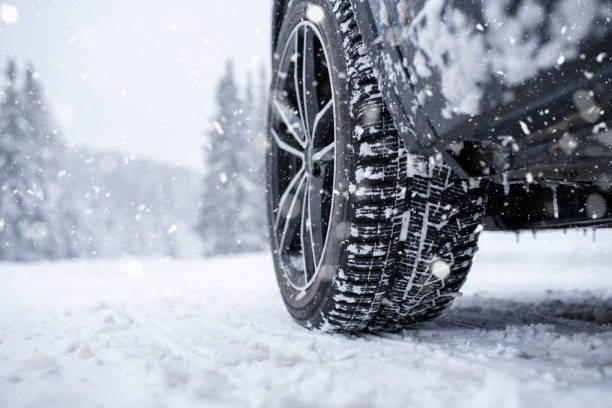Safety and Performance When You Need It Most

Safety and Performance When You Need It Most
At Turbo Tires & Lube, we know that winter driving can be unpredictable. That’s why having the right tires for the season isn’t just a smart choice—it’s essential. Winter tires are designed to handle the cold, ice, and snow, providing unmatched safety, control, and performance when the temperature drops below 7°C (45°F).
Why Choose Winter Tires?
- Enhanced Traction: Special rubber compounds and tread designs ensure superior grip on icy and snowy roads
- Shorter Braking Distance: Winter tires reduce stopping distances, helping to prevent accidents in slippery conditions.
- Cold Weather Performance: Unlike all-season tires, winter tires remain flexible in freezing temperatures for better handling.
At Turbo Tires & Lube offers a wide selection of top-quality winter tires from trusted brands, along with professional installation and balancing services to ensure you’re safely prepared for the road. Our team also provides expert advice to help you find the perfect tires that match your vehicle and fit your budget.
Winter Tires vs. All-Season Tires: Your Ultimate Q&A Guide
A: Winter tires are designed specifically for cold temperatures and icy or snowy roads. They have softer rubber compounds and deeper tread patterns to maintain flexibility and grip in freezing conditions. All- season tires are built to perform adequately in a variety of conditions, including dry, wet, and light snow, but they don’t excel in extreme winter weather.
A: While possible, it’s not recommended. Winter tires wear out faster in warm temperatures due to their softer rubber compound, which is optimized for cold conditions. Using them in the summer reduces their lifespan and compromises performance.
A: Yes, significantly. Winter tires provide better braking performance on snowy and icy surfaces, reducing stopping distances by up to 30% compared to all-season tires.
A: No. Mixing tire types can cause uneven handling and compromise safety. It’s best to equip all four wheels with the same type of tire for consistent performance.
A: Switch to winter tires when temperatures consistently drop below 7°C (45°F). At this point, all-season tires begin to lose their flexibility and effectiveness.

